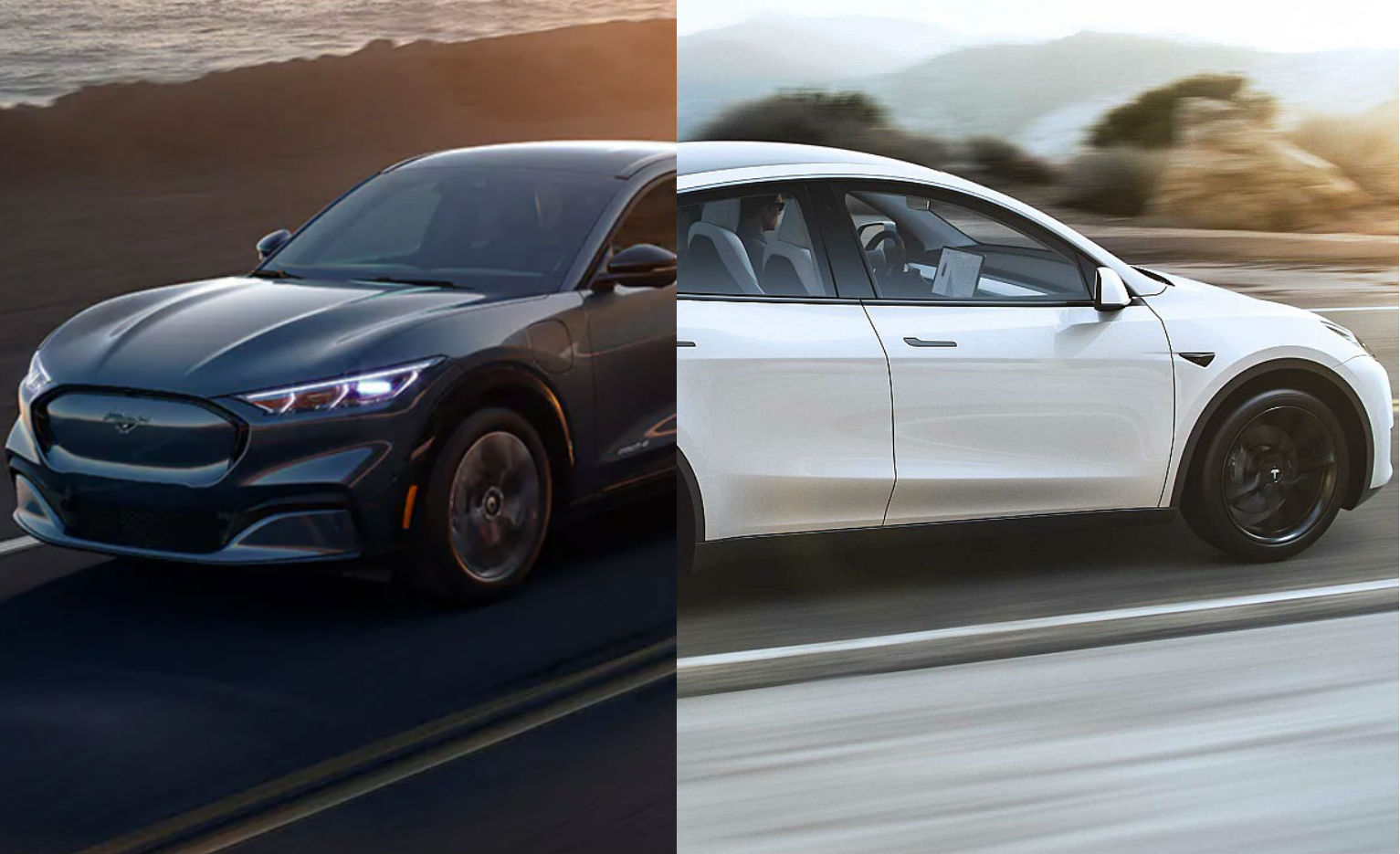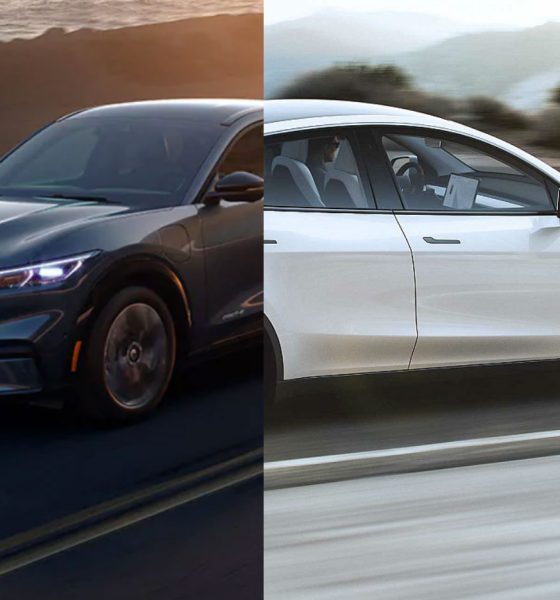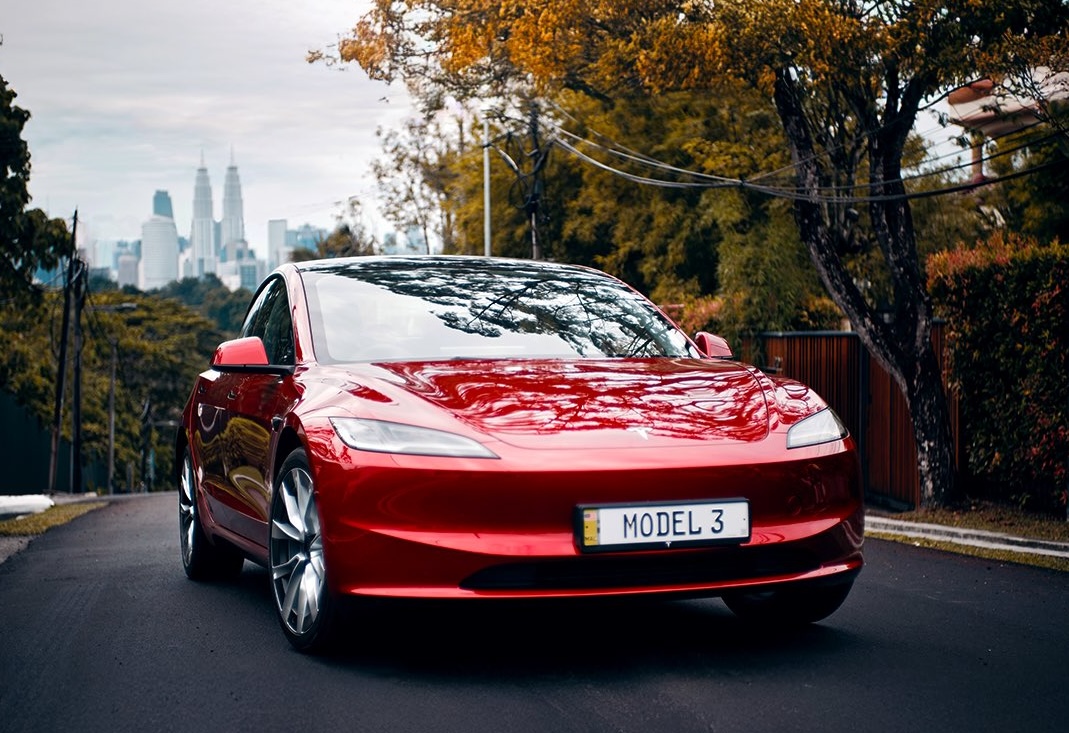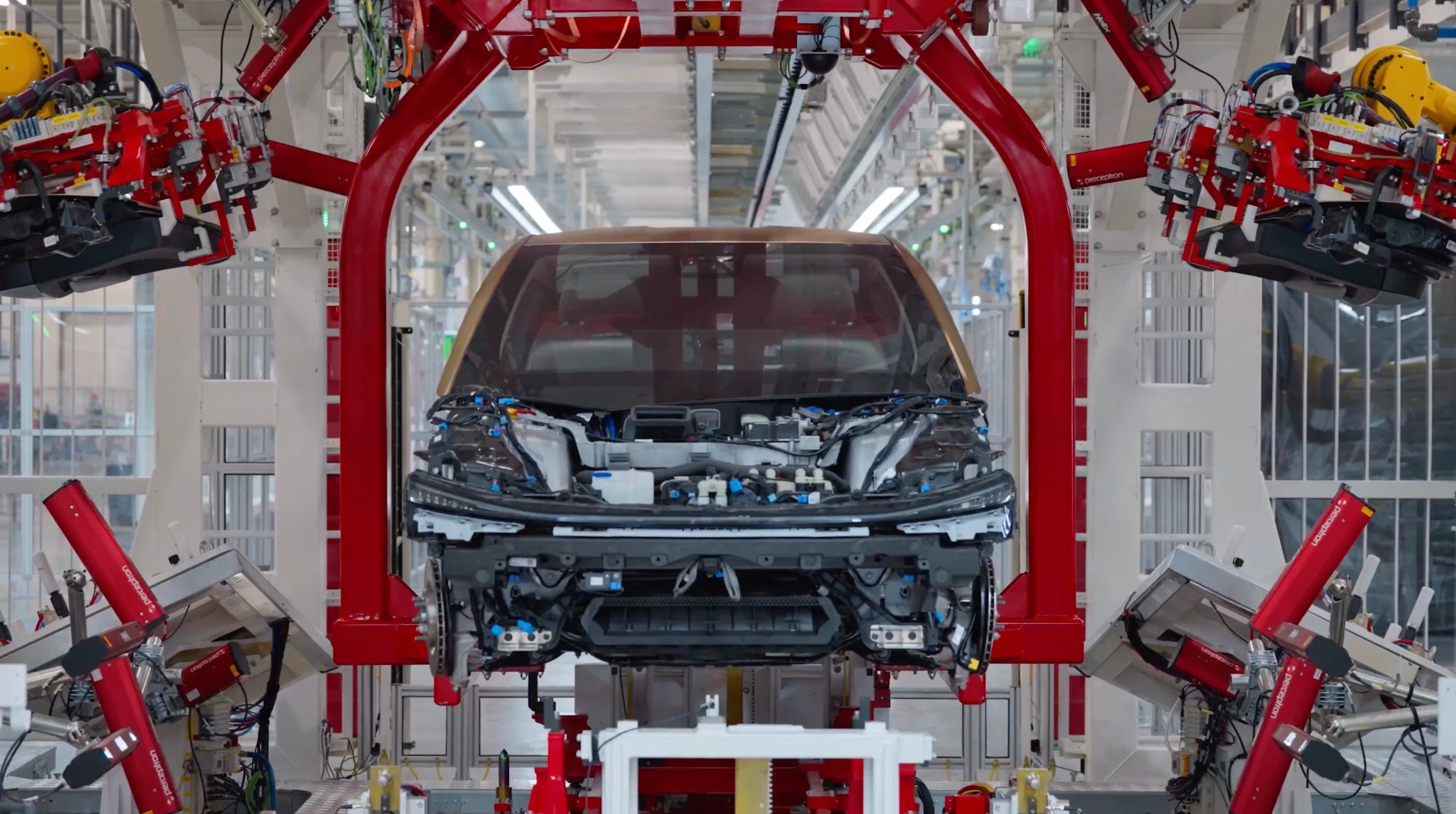

News
No more “Tesla Killers:” It’s becoming increasingly difficult to distinguish the “EV market” from the mainstream auto segment
Those who have followed the Tesla story for years would remember a time when practically every single concept car and production EV was dubbed as a “Tesla Killer.” The idea then was that while Tesla held the lead in electric cars due to its first-mover advantage, the company’s share in the EV segment would shrink once other companies like the Detroit Big Three decided to step into the electric car market.
Yet with Tesla completing over 930,000 vehicle deliveries in a year rife with chip shortages and supply chain issues, it is becoming more and more difficult to justify the idea of several companies competing in a limited “EV market.” Considering the ongoing rise in electric vehicle sales worldwide and the general decline in sales of vehicles equipped with the internal combustion engine, it is starting to become evident that today, there is no longer an “EV market.” Today, there is just a “car market,” and EVs are winning.
One does not even have to look at Tesla’s 87% growth in 2021 vehicle sales to prove this point. A look at how veteran automakers Ford and General Motors fared in 2021 would show how a notable degree of focus and seriousness in electric vehicles may positively or negatively affect an automaker’s numbers in the current auto environment. Both Ford and GM were hit, just like Tesla, with the supply chain crisis, but one could argue that General Motors ended up with the shorter end of the stick.
In Q4 2021, GM’s US sales tanked by 42.9%, Buick fell by 34.8%, Cadillac fell by 47.8%, Chevrolet dropped by 44.7%, and GMC fell by 37.7%. For the entire year, GM’s overall sales dropped by 12.9%. This ultimately allowed Japanese carmaker Toyota to overtake the Detroit veteran for the first time in nearly a century. It should be noted that GM’s electric vehicle push was practically nonexistent in Q4 2021, with the company selling all but 25 Chevy Bolts and one GMC Hummer EV before the end of the year.
Ford did not have an easy 2021 either. The company sold 1.9 million vehicles in 2021, down 6.8% from 2020. Yet despite this, there were notable points of strength in Ford’s results. The most evident of these could be found in the sales of the Mustang Mach-E, the company’s premium all-electric crossover that, at times, has been favorably compared to the Tesla Model Y, one of the market’s best-selling EVs today. Mach-E sales totaled 27,140 vehicles in 2021, making it the second best-selling electric SUV in the US. Interest in the F-150 Lightning also remained strong over the year, to the point where the company had to double its production goals twice to meet the vehicle’s existing demand.
Perhaps it was just chance, or simply bad luck on GM’s part, but one could notice that between the two Detroit veterans, Ford seems to be far more willing to walk the walk with the EV transition in 2021. General Motors might have announced various lofty targets, and US President Joe Biden might have dubbed GM CEO Mary Barra as the person who electrified the auto sector, but numbers don’t lie. In 2022, GM lost in the EV race by a wide margin, and its sales seem to have taken a hit by extension.
The coming year would be one for the record books. Various electric cars from both veterans and newcomers are expected to be released. Tesla has the Cybertruck and the Semi coming, and rumors are high that work on the company’s $25,000 electric car is underway. Rivian has the R1S ramp to look forward to, and Lucid has its work cut out with the ramp of the Air sedan. Ford has the F-150 Lightning coming this year, and GM has recently just announced the Silverado EV. Volkswagen is also expanding its ID lineup, with the highly anticipated Buzz, the successor to the iconic Microbus, launching this year.
Needless to say, 2022, and likely the years following it, would be one that’s characterized by the rise of electric cars. With veteran carmakers now playing catch up to companies like Tesla, the next years would likely see EVs take a more prominent section of the auto sector’s pie. With several countries and regions across the world poised to ban the internal combustion engine within the coming years, buying all-electric cars is starting to become common sense for the mainstream buyer. And that, ultimately, suggests that the “EV segment” has now transitioned into simply the “auto market.”
Don’t hesitate to contact us with news tips. Just send a message to tips@teslarati.com to give us a heads up.

Elon Musk
SpaceX Starship V3 gets launch date update from Elon Musk
The first flight of Starship Version 3 and its new Raptor V3 engines could happen as early as March.

Elon Musk has announced that SpaceX’s next Starship launch, Flight 12, is expected in about six weeks. This suggests that the first flight of Starship Version 3 and its new Raptor V3 engines could happen as early as March.
In a post on X, Elon Musk stated that the next Starship launch is in six weeks. He accompanied his announcement with a photo that seemed to have been taken when Starship’s upper stage was just about to separate from the Super Heavy Booster. Musk did not state whether SpaceX will attempt to catch the Super Heavy Booster during the upcoming flight.
The upcoming flight will mark the debut of Starship V3. The upgraded design includes the new Raptor V3 engine, which is expected to have nearly twice the thrust of the original Raptor 1, at a fraction of the cost and with significantly reduced weight. The Starship V3 platform is also expected to be optimized for manufacturability.
The Starship V3 Flight 12 launch timeline comes as SpaceX pursues an aggressive development cadence for the fully reusable launch system. Previous iterations of Starship have racked up a mixed but notable string of test flights, including multiple integrated flight tests in 2025.
Interestingly enough, SpaceX has teased an aggressive timeframe for Starship V3’s first flight. Way back in late November, SpaceX noted on X that it will be aiming to launch Starship V3’s maiden flight in the first quarter of 2026. This was despite setbacks like a structural anomaly on the first V3 booster during ground testing.
“Starship’s twelfth flight test remains targeted for the first quarter of 2026,” the company wrote in its post on X.
News
Tesla China rolls out Model 3 insurance subsidy through February
Eligible customers purchasing a Model 3 by February 28 can receive an insurance subsidy worth RMB 8,000 (about $1,150).

Tesla has rolled out a new insurance subsidy for Model 3 buyers in China, adding another incentive as the automaker steps up promotions in the world’s largest electric vehicle market.
Eligible customers purchasing a Model 3 by February 28 can receive an insurance subsidy worth RMB 8,000 (about $1,150).
A limited-time subsidy
The insurance subsidy, which was announced by Tesla China on Weibo, applies to the Model 3 RWD, Long Range RWD, and Long Range AWD variants. Tesla stated that the offer is available to buyers who complete their purchase on or before February 28, as noted in a CNEV Post report. The starting prices for these variants are RMB 235,500, RMB 259,500, and RMB 285,500, respectively.
The Tesla Model 3 Performance, which starts at RMB 339,500, is excluded from the subsidy. The company has previously used insurance incentives at the beginning of the year to address softer seasonal demand in China’s auto market. The program is typically phased out as sales conditions stabilize over the year.
China’s electric vehicle market
The insurance subsidy followed Tesla’s launch of a 7-year low-interest financing plan in China on January 6, which is aimed at improving vehicle affordability amid changing policy conditions. After Tesla introduced the financing program, several automakers, such as Xiaomi, Li Auto, Xpeng, and Voyah, introduced similar long-term financing options.
China’s electric vehicle market has faced additional headwinds entering 2026. Buyers of new energy vehicles are now subject to a 5% purchase tax, compared with the previous full exemption. At the same time, vehicle trade-in subsidies in several cities are expected to expire in mid-November.
Tesla’s overall sales in China declined in 2025, with deliveries totaling 625,698 vehicles, down 4.78% year-over-year. Model 3 deliveries increased 13.33% to 200,361 units, while Model Y deliveries, which were hampered by the changeover to the new Model Y in the first quarter, fell 11.45% to 425,337 units.
News
Tesla hiring Body Fit Technicians for Cybercab’s end of line
As per Tesla’s Careers website, Body Fit Technicians for the Cybercab focus on precision body fitment work, including alignment, gap and flush adjustments.

Tesla has posted job openings for Body Fit Technicians for the Cybercab’s end-of-line assembly, an apparent indication that preparations for the vehicle’s initial production are accelerating at Giga Texas.
Body Fit Technicians for Cybercab line
As per Tesla’s Careers website, Body Fit Technicians for the Cybercab focus on precision body fitment work, including alignment, gap and flush adjustments, and certification of body assemblies to specification standards.
Employees selected for the role will collaborate with engineering and quality teams to diagnose and correct fitment and performance issues and handle detailed inspections, among other tasks.
The listing noted that candidates should be experienced with automotive body fit techniques and comfortable with physically demanding tasks such as lifting, bending, walking, and using both hand and power tools. The position is based in Austin, Texas, where Tesla’s main Cybercab production infrastructure is being built.
Cybercab poised for April production
Tesla CEO Elon Musk recently reiterated that the Cybercab is still expected to start initial production this coming April. So far, numerous Cybercab test units have been spotted across the United States, and recent posts from the official Tesla Robotaxi account have revealed that winter tests in Alaska for the autonomous two-seater are underway.
While April has been confirmed as the date for the Cybercab’s initial production, Elon Musk has also set expectations about the vehicle’s volumes in its initial months. As per the CEO, the Cybercab’s production will follow a typical S-curve, which means that early production rates for the vehicle will be very limited.
“Initial production is always very slow and follows an S-curve. The speed of production ramp is inversely proportionate to how many new parts and steps there are. For Cybercab and Optimus, almost everything is new, so the early production rate will be agonizingly slow, but eventually end up being insanely fast,” Musk wrote in a post on X.









